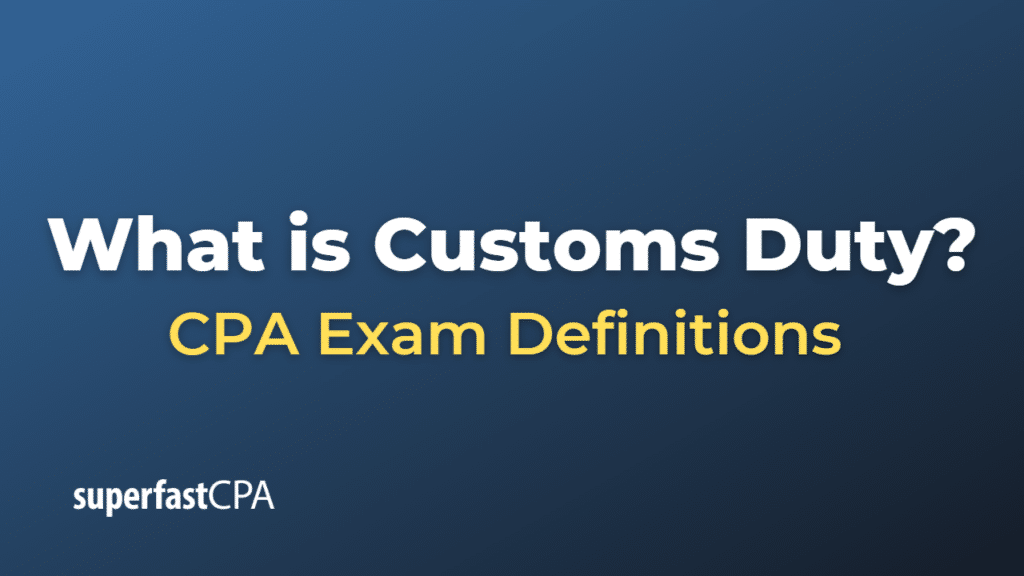Customs Duty
Customs duty is a tax imposed on imports and exports of goods. The tax is levied by the government of a country when goods are transported across international borders. The purpose of customs duty is to protect each country’s economy, residents, jobs, and environment by controlling the flow of goods, especially restrictive and prohibited goods, into and out of the country.
The rate of customs duties varies depending on the type of goods and their value. Some goods may be duty-free, while others may be subject to high rates of duty. The specific rules and rates of customs duty are usually determined by a country’s customs authority and can be quite complex.
Customs duty is typically paid by the importer (the person or company importing the goods), and the cost is often passed on to the consumer in the form of higher prices for imported goods.
It’s important to note that customs duties are separate from other charges that may apply to international shipments, such as value-added tax (VAT), sales tax, or excise tax. Also, customs duties can be affected by trade agreements between countries, which may reduce or eliminate duties on certain types of goods.
Example of Customs Duty
Suppose a U.S. company, Electronics USA, imports 100 high-end televisions from a manufacturer in South Korea. The total value of the televisions is $50,000.
The U.S. has a customs duty rate of 4% for these types of televisions. Therefore, when the televisions arrive at the U.S. border, Electronics USA will have to pay a customs duty of $2,000 ($50,000 * 4%) to the U.S. Customs and Border Protection agency.
This customs duty becomes a part of the cost of the televisions for Electronics USA. The company may choose to absorb this cost, or it may pass it on to its customers by increasing the price of the televisions.
It’s worth noting that actual customs duties can be more complex, involving specific product classifications and various duty rates. Moreover, free trade agreements, like the one between the U.S. and South Korea, may lower or eliminate these duties. In the real world, businesses often use customs brokers or other professionals to help navigate these complexities.













